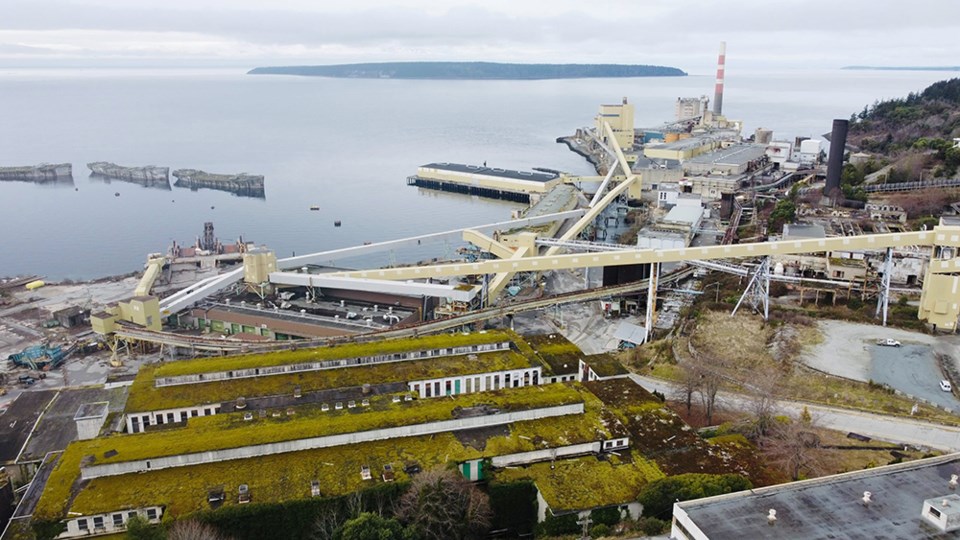City of Powell River’s five-year financial plan update was presented to the city’s finance committee meeting, fine-tuning the budget before its adoption in May.
At the February 23 finance committee meeting, city chief financial officer Mallory Denniston, presenting draft three of the 2023 to 2027 financial plan, said the budget had been prepared with city council’s direction to maintain service levels.
Denniston recommended that draft three of the five-year financial plan be referred to city council for consideration on March 16 for first three readings.
She said the property tax rate bylaw was its own separate bylaw and she was looking for direction to prepare a bylaw to present to council in April.
“The reason I can’t do it until April is because we are waiting for the revised roll from BC Assessment and the tax requisitions from the other authorities, as well as finalizing the budget,” said Denniston. “I would like direction to be able to put that together and present it in April, based on all the information as it comes in.”
Her last recommendation involved looking for direction on a possible public engagement session regarding the budget in March.
“There was direction given at the last finance committee meeting to do more of an informal public engagement,” said Denniston. “Staff are proposing that the March finance committee meeting be used for this, which is a great way for council to have one-on-one discussions with the public, more informally. It can be about this financial plan and ideas for 2024, because we’ll be talking about that in August.”
Denniston said the province had announced $1 billion in capital grants to be distributed to municipal governments. No details have been provided to staff yet as to how much that will amount to for Powell River. Denniston said that will be incorporated as a budget amendment and she would be seeking council direction on which capital project or reserve that the money will be allocated towards.
Capital plan
Denniston said there were 204 capital projects in the 2023 to 2027 capital plan, with 139 occurring in 2023. She said the total 2023 capital cost is $56 million, and 57 per cent of this is for three projects, including the consolidated wastewater treatment plant, the city’s largest capital project ever. Denniston indicated that the total 2023 capital funding source is approximately 52 per cent from grants, 28 per cent will come from city revenue and 20 per cent from debt.
Denniston said the city has roughly $50 million in reserves and surplus and the city is budgeting contributions of $6.9 million to reserves. Infrastructure project costs for 2023 are expected to be $27 million, leaving a year-end balance of approximately $30 million.
In terms of property tax, Denniston said the total city levy increase is 5.4 per cent, which is unchanged from draft two of the budget. The property tax increase for an average single-family dwelling would be a total of $99, or 4.31 per cent, according to Denniston. Total city taxes and charges (including things such as utilities) increases for an average single-family dwelling would be 4.4 per cent, or $147, she said.
Denniston said the city has recently launched a property tax notice calculator. She said people can enter their assessment from 2022 and 2023 and get an estimate of what their tax notice will be at Property Tax Calculator.
“I do want to caution the public that it is based on estimates,” said Denniston. “We think it is important for people budgeting in February to know roughly what the cost will be. In May, when everything is adopted, we’ll update it with the final numbers and then they will know the exact amount.”
Denniston said the budget is online using a draft budget visualization tool, which can be found at Budget Visualization Tool.
The issue of roads was raised by mayor Ron Woznow and councillors Cindy Elliott and George Doubt. The city typically spends $600,000 a year on roads, which is equivalent to the amount the city receives in federal gas tax funds. Doubt asked how much, ideally, would the city spend on roads. Director of infrastructure Tor Birtig said $1 million per year. Doubt asked about the implications of spending an additional $400,000 a year on roads. Denniston said taxes would have to be increased because there are not a lot of grants for roads, which is why the gas tax is used.
Mill taxes
Woznow said looking at 2024, there is the potential for significant reduction in taxation from Catalyst Paper Tis’kwat mill. He asked about the impact of the money required to be brought in to compensate for that.
Denniston said in camera meetings have been held around the city’s major industry client and details could not be disclosed. She said best, likely and worst-case scenarios have been assessed.
“We have a risk mitigation strategy in place relating to our accumulated surplus that hasn’t been designated to a reserve, to help offset potential tax increases that could result from that, but I can’t say in public what that range is,” said Denniston. “We should be hearing by the end of November if Catalyst has applied for permanent closure to BC Assessment. Going into the 2024 plan, we will be able to discuss a lot of these substantiated numbers.”
Woznow made an amendment to the recommendation before the finance committee for staff to prepare the draft five-year financial plan for consideration at the March 16 council meeting, to prepare the draft 2023 property tax rate bylaw for consideration at an April city council meeting, and to change the March 23 finance committee meeting to a public open house. His amendment was for removing the procurement manager and intergovernmental relations manager positions from the budget until the 2024 budget. The amendment failed.
The finance committee then passed the recommendation as proposed by staff regarding the draft financial plan, the tax rate bylaw, and the public open house.



